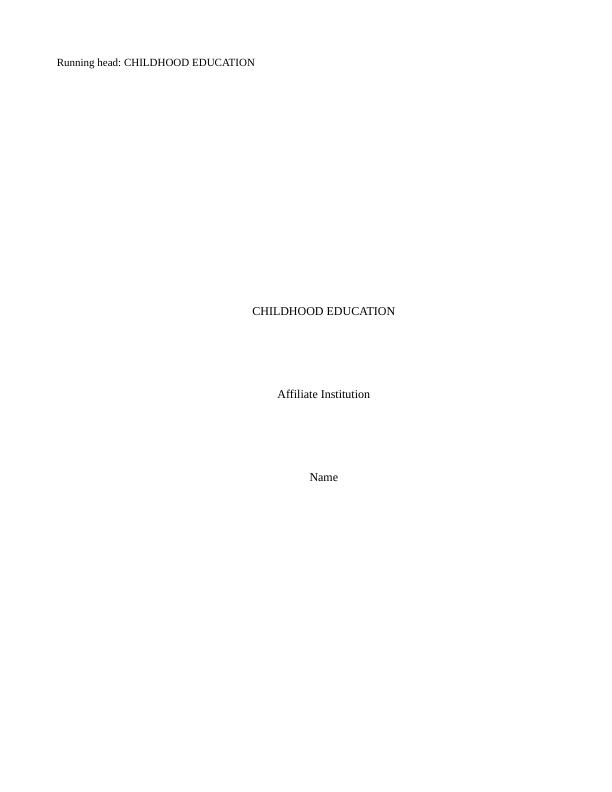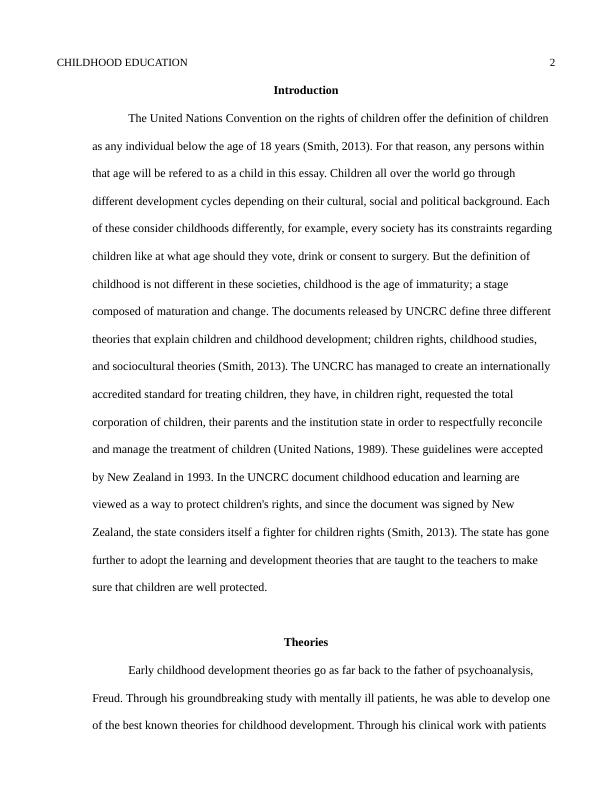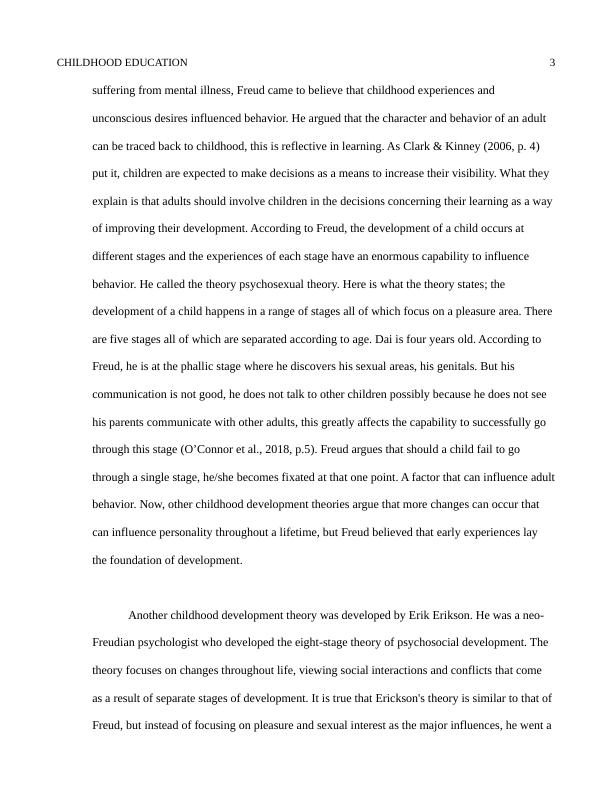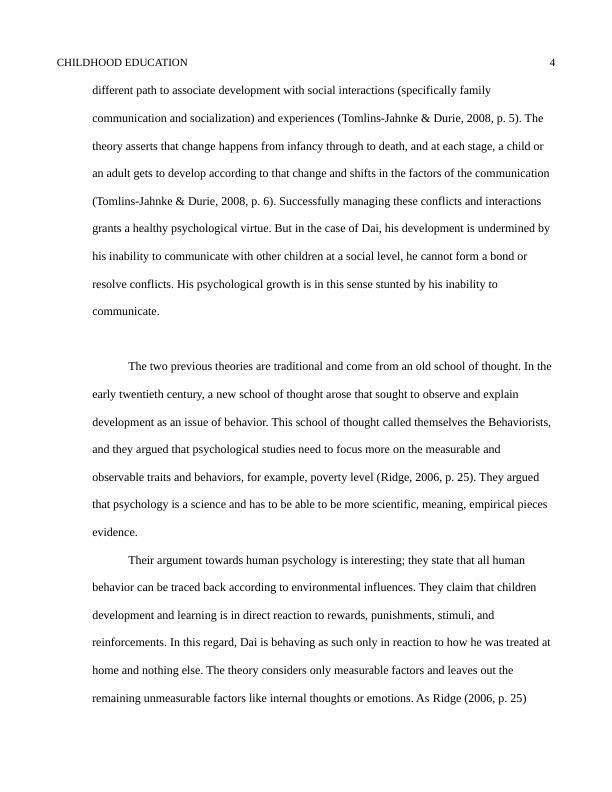Childhood Education: Theories and Importance of Early Childhood Development
Explain how childhood is 'constructed' in early childhood education in Aotearoa New Zealand and discuss the importance of teachers understanding the role of families in the enculturation of children's cultural identity and learning. Also, critically discuss why the 'childhood studies approach' asks teachers to work closely with Dai's family and pay attention to Dai's perspective in their planning and assessment of his language learning and development.
Added on 2023-06-03
About This Document
Childhood Education: Theories and Importance of Early Childhood Development
Explain how childhood is 'constructed' in early childhood education in Aotearoa New Zealand and discuss the importance of teachers understanding the role of families in the enculturation of children's cultural identity and learning. Also, critically discuss why the 'childhood studies approach' asks teachers to work closely with Dai's family and pay attention to Dai's perspective in their planning and assessment of his language learning and development.
Added on 2023-06-03
End of preview
Want to access all the pages? Upload your documents or become a member.




